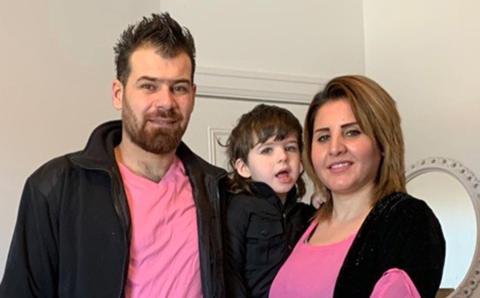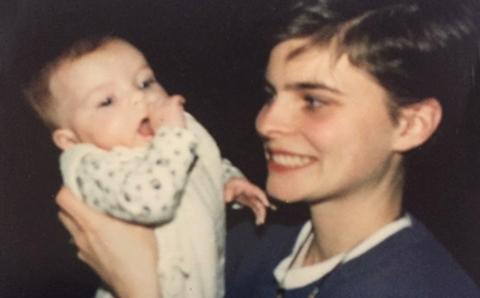As I Was Saying is a forum for a variety of perspectives to foster faith-related conversations among our readers with the goal of mutual learning, even in disagreement. Apart from articles written by editorial staff, these perspectives do not necessarily reflect the views of The Banner.
One of things that stands out to me from the last few weeks of COVID-19 response is that besides being in a constantly highly reactive and responsive mode as governmental directives change by the hour, we are also in constant triage mode, assigning degrees of urgency to our responses to the situation around us.
The shock of the past few weeks sent us all into emergency mode as we ramped up for physical distancing and reimagined social connection. Everything felt like it was in the red zone—either urgent or immediate or both. We decided whether or how to host worship services, children’s ministries, and youth groups online. We scrambled to provide resources for faith nurture at home and for small groups. We promoted online giving and virtual pastoral care opportunities.
But I wonder, as we settle into a reality where there is no new normal yet, if it might be time to rest from trying to recreate programs for an online venue and perhaps do a faith formation triage instead.
What might faith formation triage look like in your congregation? Maybe it’s as simple as asking where you see your people’s faith being stretched in healthy or unhealthy ways. Or maybe it’s encouraging families to consider what spiritual disciplines they might need to take on during this time.
Instead of trying to replicate all of our church programs to online platforms, what if triage for a pastoral response centered on the four basic spiritual needs each person has—what Faith Formation Ministries calls “the Building Blocks of Faith”? These four needs are as follows:
- to belong to Christ and his body
- to know God’s story and one’s place in that story
- to have a sustaining hope
- to find one’s calling and be equipped in it
What if your congregation’s triage entailed discerning which of these four has an urgency to it right now and which requires standard support? Personal triage might result in people admitting, for example, “I don’t need another online anything as I work from home, but I urgently need a daily reminder of the hope I have in Jesus as I face potential layoff or downsizing of my job.”
Family triage might result in people saying, “We have access to all sorts of online resources to keep our kids engaged in God’s story, but help us talk with them about why it matters so much.”
Congregational triage might result in a desire to explore our calling in such a time as this and to think more creatively about how to reach out to our community even while we practice physical distancing. Perhaps a regular simple tip for safely connecting with neighbors via the church Facebook page might encourage and equip members to use this time to lean into their missional callings.
If physical distancing is particularly challenging right now, people might be feeling stretched in the area of belonging to the body. What if your congregation encouraged virtual coffee times or meals with each other? Members can sign into Zoom and then be divided into breakout rooms to interact with each other. A group icebreaker can be inserted in the chat box to help start the conversation but is often not needed.
Belonging to each other seems to be a relatively easy theme to engage. But for many the deeper wondering is, “How am I experiencing the truth that I belong to Christ in this very trying time?” One congregation I know is asking its members to share stories of times, past and present, when they felt Christ’s presence in times of hardship. This congregation is once a week asking two or three different people to share via Zoom and supporting them with a leader who will facilitate the conversation and then end with prayers for the gathered group. These short interludes are recorded for others to listen to.
Another way to remind each other that we are all in this together might be to create a virtual gallery of hope, inviting members of all ages to take and post photos of what gives them hope during this trying time. Looking for those signs of hope and receiving those signs from others can be a life-giving spiritual practice.
Knowing God’s story and our place in it might seem to be the easiest building block to lean into as we continue our typical devotional patterns, but what if the need here is to allow for time to really dwell in God’s story? Taking a cue from God’s Big Story Cards, what if congregations encouraged family units to take a story like the Emmaus Road from Luke 24:13-35 and live into it for an entire week, one day creating a board game that traces the journey forward and back again, or another day wondering why the travelers did not recognize Jesus on the road, but later did so when Jesus broke the bread. What would it be like to pray through the story and retell the story while out on a walk? Spending a week in one rich story might help every family member find their place in that particular story.
Our faith is being formed by this pandemic in ways we have yet to fully understand. As theologian and author John Westerhoff reminded us, “Formation takes place whether we like it or not. You are always being formed by something.” How can we shepherd this formative time by not racing to programming or busyness and still support each other even in times of physical distancing?
Editor’s Note: A shorter version of this article was first published on The Network.
About the Author
Lesli van Milligen lives in Georgetown, Ont., and is a member of CrossPoint CRC. Following 20 years as an ordained co-pastor with her husband Tom, she is currently working as a Faith Formation Catalyzer for Eastern Canada







